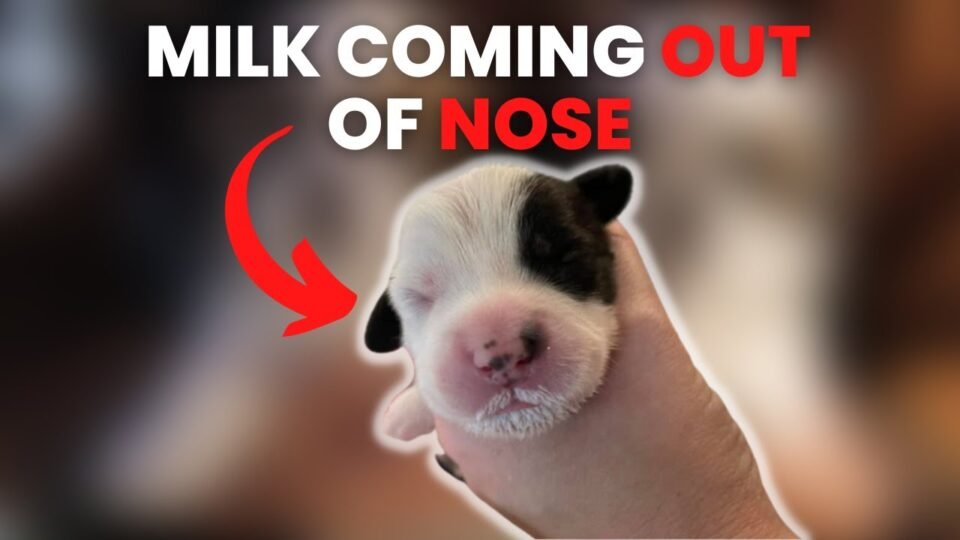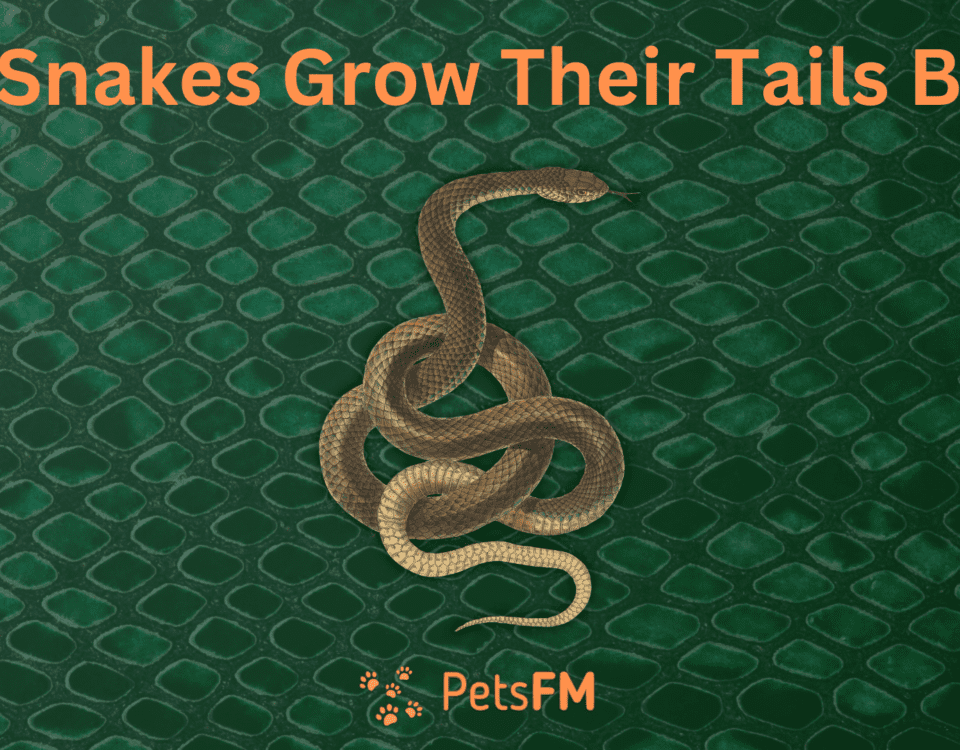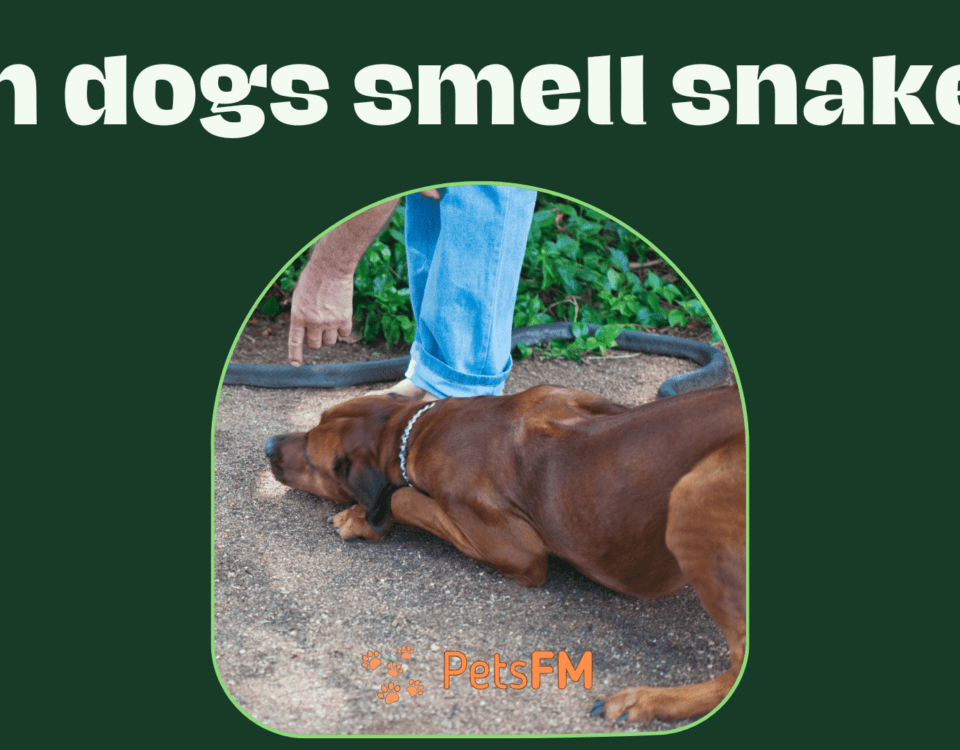![Dog Walking Slowly With Head Down? [Reasons & How To Address]](https://petsfm.com/wp-content/uploads/2024/01/Dog-Walking-Slowly-With-Head-Down-Reasons-How-To-Address-150x150.jpg)
![Dog Walking Slowly With Head Down? [Reasons & How To Address]](https://petsfm.com/wp-content/uploads/2024/01/Dog-Walking-Slowly-With-Head-Down-Reasons-How-To-Address-150x150.jpg)
![Dog Walking Slowly With Head Down? [Reasons & How To Address]](https://petsfm.com/wp-content/uploads/2024/01/Dog-Walking-Slowly-With-Head-Down-Reasons-How-To-Address-150x150.jpg)
Dog walking slowly with head down? [17+ Reasons & Solutions]
January 4, 2024


20+ Smells That Truly Repel Birds [2024 Updated Guide]
January 4, 2024If you’ve recently brought a new puppy into your family, you might notice something unusual: milk coming out of their nose while nursing. While this might seem concerning at first, it’s quite normal.
In this blog post, we will explore the reasons behind this occurrence and offer advice on keeping the mother and the puppy in good health and spirits.
But first, here’s a quick answer:
When a puppy nurses too aggressively and swallows air along with the milk, it may result in milk coming out of their nose. This phenomenon can also be attributed to various causes such as overfeeding, improper nursing posture, disruptions during feeding, or congenital issues like a cleft palate.
Why Is Milk Coming Out Of Puppy’s Nose While Nursing?
Milk coming out of a puppy’s nose while nursing is somewhat common, often signaling an issue in their feeding process. This can happen for various reasons, each needing attention to ensure the puppy’s health and comfort.
1: The Puppy Is Positioned Incorrectly While Feeding
The position in which a puppy nurses can significantly impact its ability to swallow milk properly. If a puppy is lying on its back or in an unnatural position, milk may inadvertently enter the nasal passages instead of going down the throat.
This can cause discomfort and lead to milk coming out of the nose. Proper positioning, such as keeping the puppy’s head slightly elevated and ensuring they are on their stomach or side, can facilitate easier swallowing and digestion. Careful attention to the nursing posture is vital for a healthy feeding process.
2: You Are Overfeeding The Puppy
When puppies are overfed, they may struggle to digest the large volume of milk, leading to regurgitation. This is particularly problematic for small and young puppies with fully developed digestive systems.
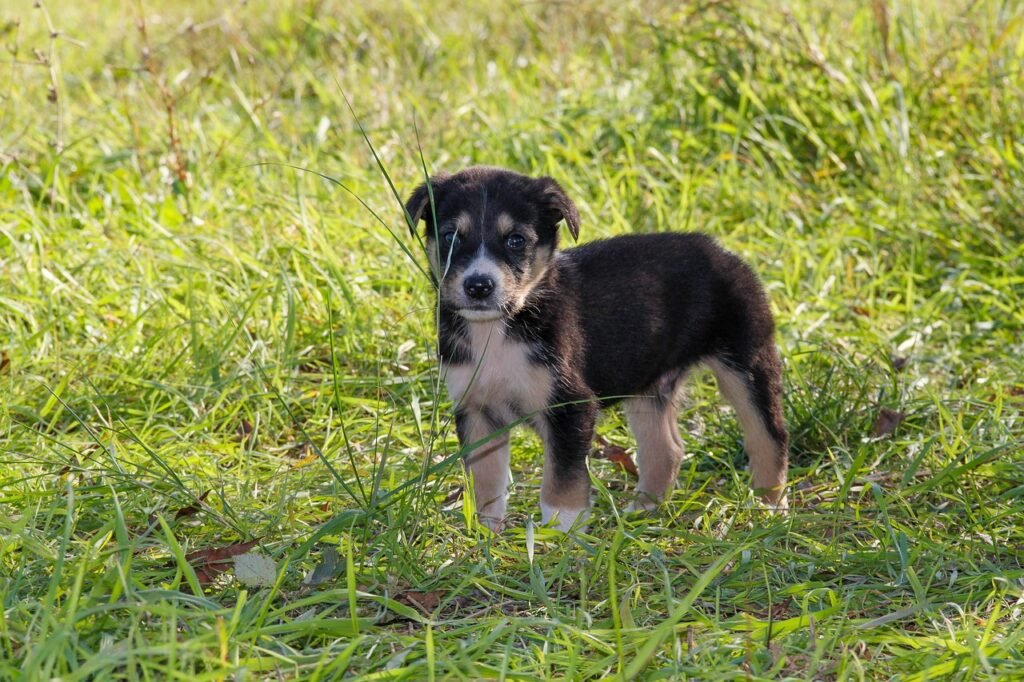

Little Puppy in Grass
Overfeeding can occur if a puppy is allowed to nurse for too long or too frequently. Monitoring their feeding schedule is crucial to ensure they are not consuming more milk than their stomachs can handle. Adjusting feeding times and intervals is vital to preventing this issue.
3: Congenital Birth Defect
Congenital disabilities like a cleft palate can cause milk to seep into the nasal passages. A cleft palate is a structural issue with an opening in the roof of the mouth that connects to the nasal cavity. This defect can allow milk to enter the nasal area during nursing.
Puppies with a cleft palate require special care and may need veterinary intervention for proper feeding and nutrition. In these cases, feeding methods may need to be adjusted, and in some situations, surgical correction might be necessary for long-term health and proper development.
Also, Read: How soon can a dog get pregnant after giving birth? Updated 2024
4: Interrupted Nursing Sessions
Frequent disruptions during nursing can lead to improper swallowing, causing milk to come out of the puppy’s nose. Interruptions can happen if the nursing environment is noisy or disturbed or if the mother moves around too much during feeding.


Puppy Nose Closeup
These interruptions can cause the puppy to swallow air and milk, leading to regurgitation through the nose. Providing a quiet, calm, and stable environment for nursing sessions can help minimize disturbances and support effective and safe feeding.
5: Nasal Passage Anomalies
Puppies could have structural irregularities in their nasal passages, making them more prone to having milk come out of their nose. Such anomalies can cause milk to take the wrong path during nursing.
6: Rapid Suckling
If a puppy suckles too rapidly, it may not manage to swallow all the milk efficiently. This can cause milk to back up and exit through the nose.
7: Weak Sucking Reflex
Some puppies, particularly those who are weaker or smaller than their littermates, may have a less developed sucking reflex. This can lead to ineffective nursing and result in milk coming out of the nose.
8: Overcrowding at the Feeding Source
If there are too many puppies nursing at once, some may struggle to get enough milk and end up inhaling it quickly or awkwardly, leading to milk coming out through the nose.
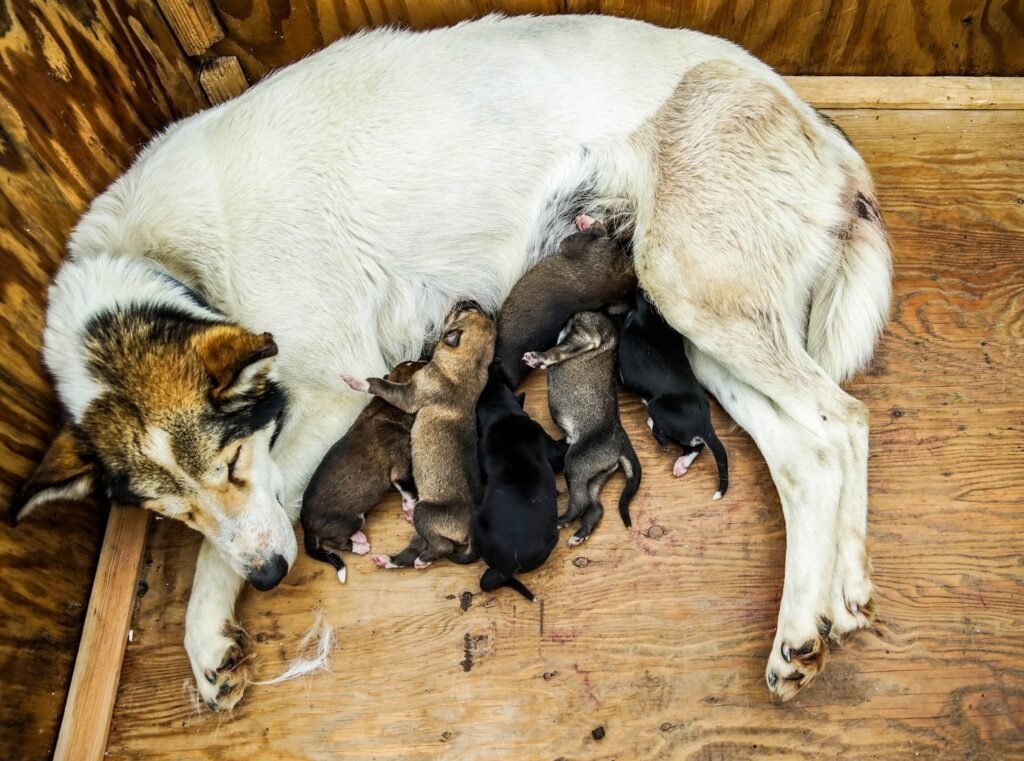

Dog with Puppies
9: Mother’s Milk Flow Rate
Sometimes, the issue can be with the mother dog. If her milk flow is too forceful or fast, puppies might have trouble keeping up, causing milk to exit through the nose.
Must Read: Do’s and Don’ts of Scruffing Your Dog: A Comprehensive Guide
What Can You Do To Prevent Milk Coming Out Of Puppy’s Nose?
To address and manage the milk coming out of your puppy’s nose, consider implementing these strategies, detailed under specific subsections:
1: Monitor Your Pup’s Feeding Volume
Implement ‘Precise Milk Volume Management‘ to ensure your puppy’s milk intake is appropriate, preventing it from causing nasal discomfort. Follow this four-step method:
- Monitor the volume of milk each puppy consumes during feeding sessions.
- Tailor the quantity of milk according to their growth, weight, and observed behavior.
- Utilize a syringe with an adjustable flow rate to administer precise milk quantities.
- If necessary, divide the total milk volume into smaller, more frequent feedings.
Keep in mind that puppies have varying appetites and nutritional requirements. Watch their eating patterns closely – signs of bloating or agitation post-feeding might indicate the need for volume adjustment.
Expert Advice: Always ensure feeding equipment is thoroughly cleaned and sterilized to prevent bacterial growth and protect the puppies from infections.
2: Adjust Your Feeding Technique
Modifying the feeding method is essential to prevent and treat the issue of milk coming out of a puppy’s nose during feeding. Here’s how you can do it:
- Opt for a bottle with a smaller nipple to better regulate milk flow.
- Position the bottle at an angle of 45 degrees, which helps reduce the likelihood of the puppy gulping down too much milk at once.
- Avoid force-feeding the puppy, as it can cause discomfort and lead to milk regurgitation.
- Pay close attention to the puppy’s behavior during feedings. They might indicate when they need to pause or are full.
It’s crucial to monitor puppies while they eat to identify any problems early on, thus preventing recurrent incidents of milk coming out of their noses.
Additionally, administering a few drops of clean water between feedings can help keep the puppy hydrated.
Expert Tip: Keep a close eye on each puppy’s development and be ready to adjust their feeding schedule as necessary. Preventing the puppy from drinking milk too quickly is critical to avoiding messy situations.
3: Take A Break Between Feeding Sessions
Incorporating pauses in the nursing routine is crucial for puppies. These breaks allow the puppy to properly digest the milk properly, reducing the risk of it regurgitating through their nose.
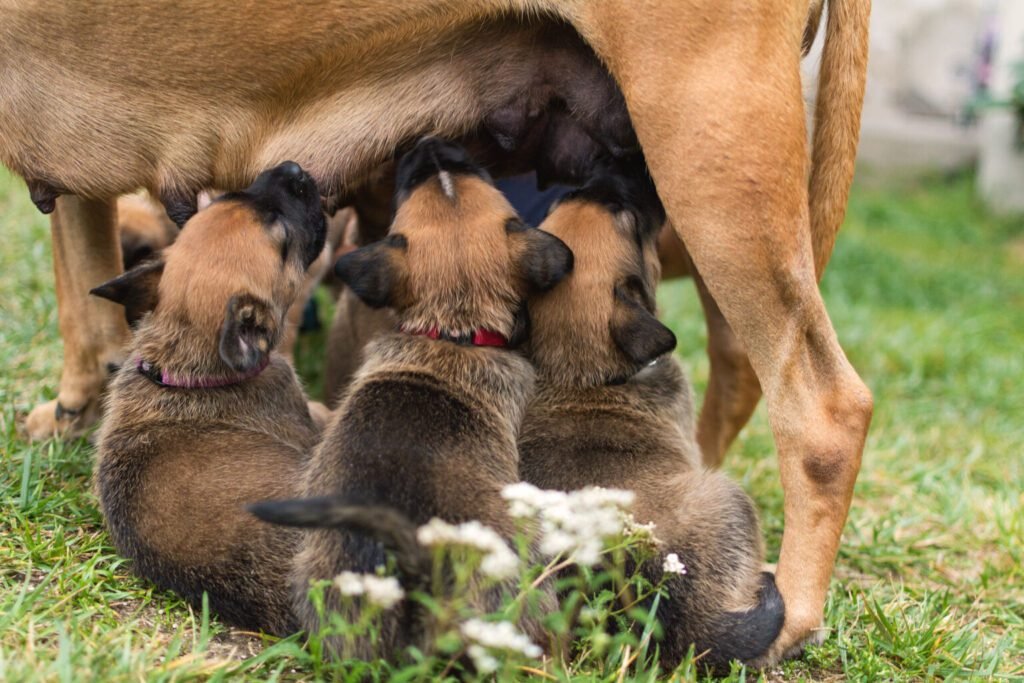

Nursing Puppies
When a puppy nurses continuously without any interruption, there’s a higher chance of milk entering the nasal passages.
Thus, it’s beneficial to briefly remove the puppy from feeding midway to let the milk settle in their stomach.
Recommended Reading: My dog lowers his head and stares: Canine behaviour explained
4: Check With Your Puppy’s Health Regularly
Ensuring your puppy’s health involves regular veterinary visits. These check-ups are crucial for detecting any health issues early, updating vaccinations, and receiving essential advice on nutrition and exercise.
- Keep a close eye on your puppy’s behavior, appetite, and growth patterns, as changes in these areas can signal potential health concerns.
- Adhere to immunization schedules tailored to the specific risks of your region.
- Professional veterinary advice is essential for your pet’s health. Avoid waiting for a crisis to occur before seeking help.
- It’s a good practice to book your next appointment while wrapping up the current one. With diligent care and attention, your puppy will grow into a robust and healthy adult dog.
Always consult a vet for health concerns instead of relying on internet searches. Professional expertise is the safest approach to ensuring your puppy’s well-being.
5: Choose the Right Formula
If you’re hand-feeding puppies, ensure you’re using a puppy-specific formula that closely mimics the mother’s milk. Some formulas are easier to digest and less likely to cause regurgitation.


Right Foruma for Puppies
6: Monitor the Puppy’s Posture During Feeding
The position in which a puppy is fed can impact how easily they swallow milk. Feeding them in a natural, belly-down position rather than on their back can help prevent milk from entering the nasal passages.
Editor’s Pick: Can Dogs Eat Birds? Is It Safe & What To Know!
Identifying Milk Aspiration in Puppies
Milk aspiration, where a puppy accidentally inhales milk into its lungs during nursing, is a concern to watch for. This can occur if the puppy is nursing while on its back, leading to a large volume of milk being swallowed and mistakenly entering the lungs instead of the stomach.
Sudden position changes during nursing can also cause milk to be inadvertently forced into the lungs. With their small airways and immature immune systems, puppies are particularly at risk of developing pneumonia due to milk aspiration, more so than adult dogs.
Why Do Puppies Get Milk In Their Lungs?
Puppies may aspirate milk due to a few anatomical and physiological reasons. Firstly, they are born with a relatively small stomach but larger intestines, complicating the process of digesting milk efficiently.
Additionally, puppies have underdeveloped throat and esophagus muscles, making swallowing and retaining food and liquids challenging and increasing the risk of aspiration.
What Happens When Milk Enters The Puppy’s Lungs?
When milk enters a puppy’s lungs, it can result in severe health issues due to milk aspiration, which is different from normal breathing.
Inhaling milk into the lungs can cause irritation and may lead to pneumonia, a severe condition requiring prompt and proper treatment.
Symptoms of aspiration pneumonia in puppies include:
- Difficulty in breathing
- Persistent coughing
- General weakness or lethargy
- Reduced appetite
- Elevated body temperature
If your puppy displays any of these signs following milk entering their lungs, it’s crucial to seek veterinary care immediately for diagnosis and treatment.
Treatment Guidelines
If you suspect your puppy has inhaled milk into its lungs, the immediate step is to visit a veterinarian. This is a critical condition that requires urgent attention, as it can be life-threatening if left untreated. Signs that your puppy might have milk in its lungs include breathing difficulties or a wet-sounding chest upon examination with a stethoscope.
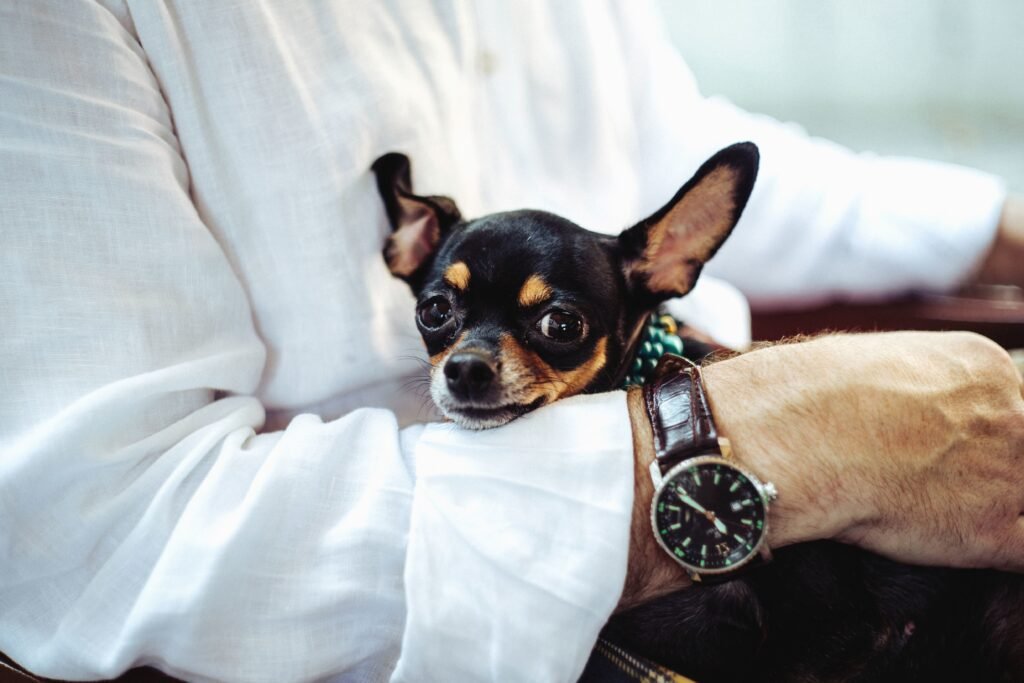

Chihuahua in Hand
The treatment typically involves administering antibiotics and providing oxygen therapy. In more severe cases, surgical intervention may be required to extract the milk from the lungs. With timely and appropriate care, most puppies can recover entirely from milk aspiration and enjoy a healthy life.
Why Is My Puppy Sneezing Milk?
If a puppy sneezes milk, it could indicate overfeeding or a medical condition such as a cleft palate or reverse sneezing. It’s essential to closely monitor the puppy’s health and seek veterinary advice if the symptoms continue or other issues emerge.
Reverse sneezing, while not a disease or illness, is a respiratory occurrence often triggered by irritation or inflammation in the nasal, pharyngeal, or sinus passages. A veterinarian should evaluate this condition to ensure the puppy’s overall health and well-being.
Could milk exiting a puppy’s nose indicate other health issues?
Milk emerging from a puppy’s nose might not only be due to nursing challenges or a cleft palate, but it could also signal additional health complications. For instance, a respiratory infection or an obstruction in the nasal passages could be responsible.
If you’re worried about your puppy’s health, especially if they exhibit other symptoms like coughing, sneezing, or breathing difficulties, seeking a veterinarian’s opinion for a thorough assessment is recommended.
Is it typical for puppies to occasionally expel a small amount of milk through their nose?
It’s common for puppies to accidentally expel a minor amount of milk through their nose occasionally, especially during enthusiastic nursing sessions. However, if you consistently observe a noticeable quantity of milk being expelled, you should consult a veterinarian for an examination.
Read Next: Dog walking slowly with head down? [17+ Reasons & Solutions]
Conclusion
Milk emerging from a puppy’s nose during nursing can stem from various reasons. One possibility is that the puppy is nursing too energetically, which leads to swallowing air along with the milk, or it might result from overfeeding.
This occurrence might also indicate a congenital disability, such as a cleft palate. Additionally, a condition known as reverse sneezing could be another cause.
Although it may be an issue of the puppy learning to handle milk intake properly, a veterinarian should examine the puppy to eliminate any significant health concerns. Observing the puppy’s feeding patterns and general health ensures their overall welfare.
